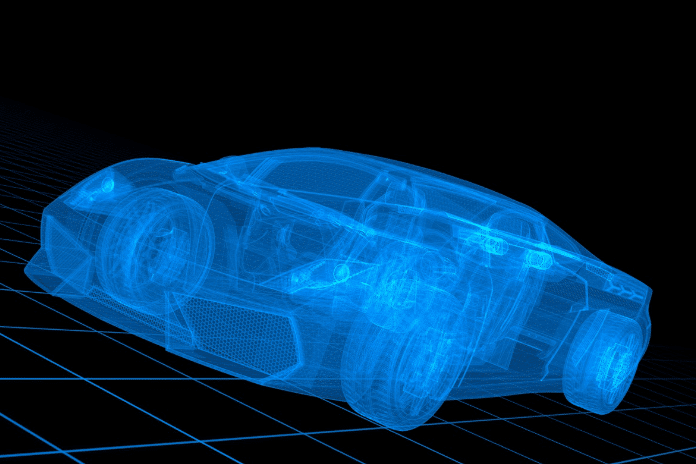
In the recent past, the number of electric-driven vehicles in the market has continued to thrive. For example, in the UK, the purchase of these models is gaining momentum.
According to a report released late last year, one in every 12 cars bought in the UK was an electric car. Around Europe, the sale of plug-in vehicles had risen by a third. A similar trend was witnessed in the US, China, and the world. Last year, the buying of these cars around the world had passed the one million mark.
Well, the figure may be way much below that of petrol and diesel cars, but it’s a great achievement for the sector. Drivers are starting to realize the benefits of owning an electric vehicle. With all the benefits and hype regarding these vehicle models, you would ask yourself why their use is still minimal.
The truth is that the manufacturers of electric vehicles are faced with many challenges. On one end, for example, companies such as Tesla have confessed being unable to release better EVs because of the inadequate battery supply. On the other end, companies such as LG Chem and BYD have confirmed spending their nights coming up with new battery technology for electric cars.
What are the new battery technologies for electric cars? Further tech advancement is in the process of being commercialized, and that would see the recharge-time of electric vehicle batteries reduced to six minutes. Also, Toyota has a plan to introduce solid-state batteries for electric vehicles.
Lastly, there is a tech upgrade by a startup in Switzerland, and that will see the range of electric car’s batteries increase to about 600 miles.
These advancements, among many others, are likely to see the production of electric vehicles get bigger and better. You will have to dig deeper into the article to understand why EVs will be the next big thing in the industry.
1. Recharge Time Reduced to About Six Minutes
The battery remains a vital component of an electric vehicle. Almost every type of electric vehicle requires the battery to perform its usual tasks. Electric cars run on electric motors and which have proven to be cost-effective for a typical driver. Governments have been on the forefront to support the EV industry. Incentives, as well as, money-back guarantees, have been introduced to encourage people these models.
The UK government, for instance, has a campaign dubbed ‘Road to Zero’ and which aims at ensuring that half of the cars sold come 2030 will be the hybrid models. Come 2040, and many governments have pledged to stop the sale of new petrol and diesel cars. By 2050, many western countries have pledged to ensure that all vehicles hitting the road have zero-emission.
However, all these campaigns and visions have been stalled by problems related to the battery supply. The battery’s recharge time is one of the few challenges facing the vehicle industry. Currently, the available cells take much time to recharge. As a result, many drivers have opted for alternative vehicle models to avoid inconveniences that may arise from a slower recharge time.
Luckily and thanks to tech advancements, there is a plan underway targeting the EV’s batteries. The new tech is likely to see the charging time reduce rapidly. After commercialization, innovation will be a significant milestone for the EV industry. Echion Technologies, a Sawston-based battery company, is the mastermind behind this brilliant idea.
Currently, the batteries charging time is around 45-minutes with the best period being 30 minutes, and for a chosen number of cars. Therefore, dropping the recharging time to six minutes will be a significant and better achievement for the EV industry.
If this tech advancement is commercialized, it will solve one of the biggest problems with EVs, which is charging time. Six minutes is almost the time you need to refill your car’s gasoline tank. The advancement is likely to boost the ‘travel on the go’ means for the drivers using EVs.
According to a report by Cambridge Independent, Echion’s technology involves graphite with another material that Dr. Jean De La Verpelliere hesitates to reveal. Almost two years ago, the founder of Echion established a material that could be introduced in Li-ion batteries.
Echion Technologies primarily focuses on high-performance materials for lithium and Li-ion batteries. The company’s founder hinted that these high-performance materials are ‘dropped in’ to a typical lithium battery setting.
The newly introduced materials will act as the central unit of the EV battery. The added powder is likely to see the recharge time reduce to six minutes as opposed to the usual 45-minutes timeline. Today, Echion, a beneficiary of funding by Cambridge Enterprise, is in a position to produce 1kg of this high-performance material daily. 1kg is the amount needed to perform on a car battery.
According to Dr. Jean, the company’s CEO, plans are underway to increase the production of this robust material. The company already has a prototype and is working on the commercialization bit come next year. The material will be tested and validated before being introduced into the market.
Many prominent companies have come forward to acknowledge the effort revealed by Echion. The fact that the tech company is funded by world-class institutions such as Cambridge Enterprise is an assurance that Dr. Jean and his team already know what they want.
2. Solid-State Batteries to Replace the Liquid-State Batteries
Over the past few decades, Toyota has been lagging when it comes to embracing electric vehicles. According to the company’s CEO, that trend is going to change as the company has plans underway to introduce more electric cars and battery technologies favoring the sector. Not long ago, the CEO announced a goal to sell over 5.5 million EVs was moved from 2030 to 2025. That’s an indication that the firm has a strategy to boost sales.
Toyota has a plan to introduce solid-state batteries; a move that they believe will see the company achieve their sales’ goal before its time. The Japanese company announced that they intend to ensure that the solid-state batteries are available to the public before the next Olympics games. According to Shigeki Terashi, the development boss, the most-anticipated solid-state battery will use a solid electrolyte in place of the liquid electrolyte.
According to the Japanese company, the components of a solid-state battery will offer better energy density as compared to that in a liquid-state cell. In other words, the new battery will have more electricity crammed into a given volume. Therefore, automakers won’t have to make bigger battery packs to boost the range of electric cars. One fantastic thing is that the awaited solid-state batteries will be nonflammable and thus secure to use.
Earlier this year, the Japanese company announced a partnership with Panasonic. The joint venture was to see Panasonic manufacture batteries, including the solid-state models. Also, the company is said to have partnered with Subaru to introduce a new line of EVs.
The two major moves should be a clear indication that Toyota is looking forward to taking the EV industry by a storm. Companies such as BMW and Volkswagen have also invested heavily on startups to avail solid-state batteries for their new EV versions.
3. Electric Car Battery with 600 Miles of Range
Over the past few decades, electronic car manufacturers have been barred from growth by issues related to range. Now and then, the battery developers have come up with strategies that aim at improving the range of electric cars. Well, some ideas have proven futile while others have affected the lifespan of the batteries, which is a disadvantage.
Luckily, a Swiss startup, Innolith, claims to have the secret to all these battery troubles. The startup says that the high-density Li-ion battery it will be launching has all those features.
According to Innolith’s CEO, the most-awaited EV battery will be the first-ever 1000 Wh/kg rechargeable battery to reach the market. If the company’s claims are correct, the battery will have surpassed that of Tesla, which is 250Wh/kg. According to Alan Greenshield, the innovation is a big deal to the EV industry as it will be roughly four times larger than the typical Li-ion battery.
A battery of such caliber is likely to drive a car for 621 miles (1000kms) on a single charge. The range is way much ahead of the typical 330 miles provided the Panasonic batteries found in the Tesla car model. Almost every carmaker out there is focused on such a mileage. However, most of their efforts have borne no fruits.
In the process of boosting range, companies such as Henrik Fisker have their hopes on solid-state battery innovations. Unfortunately, their model is likely to achieve 500 miles of range, which is way much below Innolith’s battery model. Surprisingly, Alan’s company uses a ‘wet’ liquid electrolyte in the new battery.
But, the only difference with their battery is that they use an inorganic substance in their electrolyte as opposed to the typical organic solvent. An inorganic solution is less flammable and more stable as compared to the organic ones.
Sources:
1. Future batteries, coming soon: Charge in seconds, last months and power over the air – pocket-lint
2. Electric car battery with 600 miles of range? This startup claims to have done it – The Verge
3. Toyota pushes ahead with solid-state batteries for future electric cars – Digital Trends





